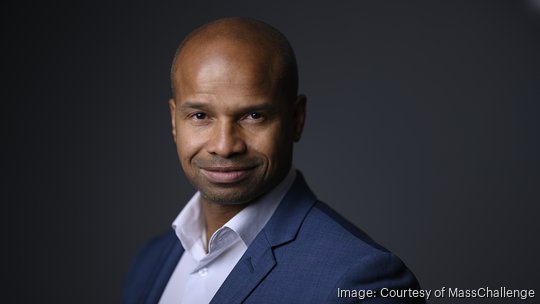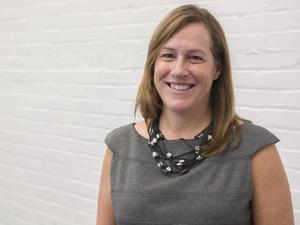After years of effort to build the state’s fintech sector, Massachusetts is not only sprouting its own financial technology startups, but it’s also attracting companies and founders from outside of the Bay State — and the nation — to move their businesses here.
Massachusetts has long had its industry darlings, with life sciences, robotics and cleantech companies making a name for themselves most recently, and with financial services, hospitals and higher ed driving the economy for decades before that. In recent years, investors and economic development leaders have sought to bring together the two powerhouses of financial services and technology to grow the state’s fintech industry into a world-leading cluster.
There are some signs of early success, with more than 350 fintech companies now based in the state, according to the Mass Fintech Hub, which itself launched in 2021 to build a collaborative fintech network and prevent startup founders from leaving the Bay State.
Fintech leaders who have set up operations in Massachusetts over the last few years say that factors such as the deep talent pool, financial institutions and quality of life and educational opportunities brought them here. But venture capitalists and founders say there’s more that can and should be done to support this fledgling industry — and keep them here as they grow into major employers.
“We’re very good at robotics. We’re very good at healthcare. We’re very good at biotech. We are sort of at the center of so many different industries, and I think fintech is certainly one of those massive industries that needs to have a presence here,” said Vivjan Myrto, founder and managing partner of Boston-based Hyperplane Venture Capital.
A new age of fintech
Over the last few years, several programs have cropped up locally to support fintech founders. Since 2016, Digital Federal Credit Union has run a fintech accelerator through its downtown Boston innovation center. In 2018, MassChallenge launched a new fintech accelerator. One longstanding stalwart of the fintech industry is the FinTech Sandbox, a nonprofit founded in 2014 to support fintech entrepreneurs by offering financial data feeds and APIs for development purposes.
FinTech Sandbox co-founder Sarah Biller said the adoption of new technologies and the decreasing cost of such technologies have helped spark a new age of fintech innovation.
“There’s a cycle of innovation in financial services that for the last 10 years, it has ramped up incredibly fast, incredibly robustly,” Biller said.
More recently, the Mass Fintech Hub was born out of a public-private partnership created from the state’s FinTech Working Group. The group’s goal is to boost the Bay State’s standing in the financial services technology industry. Its founding members include organizations like Massachusetts Mutual Life Insurance Co., Brandeis University, FinTech Sandbox and the Baker administration’s Executive Office of Housing and Economic Development.

Damon Cox, former assistant secretary for technology, innovation and entrepreneurship under EOHED, said that even though the state wasn’t considered one of the country’s largest banking centers, many recognized it had the factors needed to start a fintech ecosystem, from the large financial institutions to the tech talent pipeline.
“It’s really important to diversify our reliance upon industries and in different tech sectors. I think it’s really important to look at fintech as one of those areas in which this is an opportunity for us to grow,” said Cox, who is now head of next practice and inclusive growth at MassChallenge.
What founders care about
Massachusetts ranks near the top of the list of states from which people are leaving the fastest. But not everyone is moving out of the Bay State.
Ryan Canin, a founder from South Africa, initially lived in Miami when he moved to the U.S. in 2018 to build his company, DocFox. When it came time to scale, he moved to Boston. Canin said the density of the talent pool in Boston is much more attractive compared with cities like Miami or Chicago.
“There wasn’t necessarily the same talent density. You need universities and you need companies that have exited and grown big and trained people and then people have left those companies to be able to create a much larger, thriving talent pool,” Canin said.
DocFox helps streamline commercial account opening for banks. Canin said the startup has about 300 financial institutions using its services. The company’s Boston office is home to sales and product employees and the engineering team is in South Africa. Overall, the company has about 120 employees with around 25 in the U.S. Not all of them are based in Boston, but Canin said every six or eight weeks everyone spends a week in the company’s Beacon Hill office.
B4B Payments is a European company that chose to set up its U.S. operations in Massachusetts. The company opened an office in Newton in 2020 and moved to a new space in Wellesley in 2022 to accommodate local employee growth from three to 10.
Kieran Draper, head of North America for B4B Payments, said expanding beyond Europe was “akey strategy to increase the valuation of the company and make it more sellable.”
Draper said there was “quite a bit of discussion” around where to base the company. They focused in on Massachusetts and New York, but ultimately chose the Bay State for several reasons.
For one, Massachusetts had a talent pool that was both creative and understood financial services. Another factor was the presence of life sciences and tourism companies, which are key market segments for B4B Payments on the customer side. Massachusetts also offered a better quality of life for employees who wanted to live outside a major city.
Then, there was what Draper called the “ecosystem for fintechs.”
“We have a longer-term objective to provide banking-as-a-service to fintech companies who don’t want to go with the traditional bank,” Draper said. “We looked at the Mass Fintech Hub. It was a bullseye for us in terms of being in the right environment, and so far it has been.”

Remaining hurdles
Biller said one of the remaining key challenges for growing the fintech industry is “our ability to retain the next generation of talent.”
She said young people no longer view banking as a “bad industry,” and are interested in using financial technology to solve problems. But more could be done to connect them to the industry, she said. Mass Fintech Hub has begun some of this work by hosting career fairs, mentoring programs and training for students. Retaining young talent will also come down to factors such as the availability and cost of housing in Massachusetts, Biller said.
She also pointed to funding access as a potential barrier for fintech founders.
“I think the other thing really that for me is so striking is that we have not nurtured and grown our early-stage investing in innovation,” Biller said. “There’s still hurdles. There’s still gaps that this ecosystem needs to close.”
Massachusetts typically ranks third among states each year for the amount of venture funding going to its companies. But in 2022, Massachusetts was behind California, New York and Florida when comparing how much funding fintech companies raised, according to data from Crunchbase. It tied Texas with $1 billion raised.
When venture capital funding increased nationwide in 2021, Massachusetts fintechs also got a boost and raised a total of $3.3 billion. In 2020, they brought in $1.2 billion.
Cox also called for more investment in fintech companies in Massachusetts.
“I think it’s important that funders, VCs, and larger companies look at some of these smaller fintech companies and look at the work that they’re doing, not just around the free market, but what are they doing around social impact,” Cox said. “Fintech can have impact in every community, every facet of life. And so all these ventures need to be explored and need to be considered when it comes to investment.”








